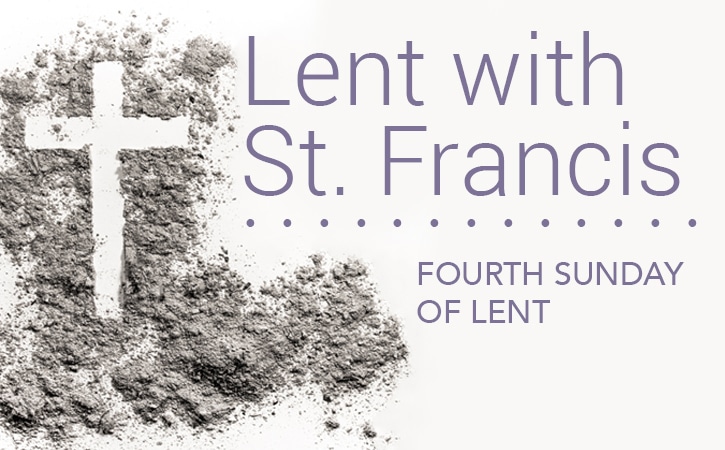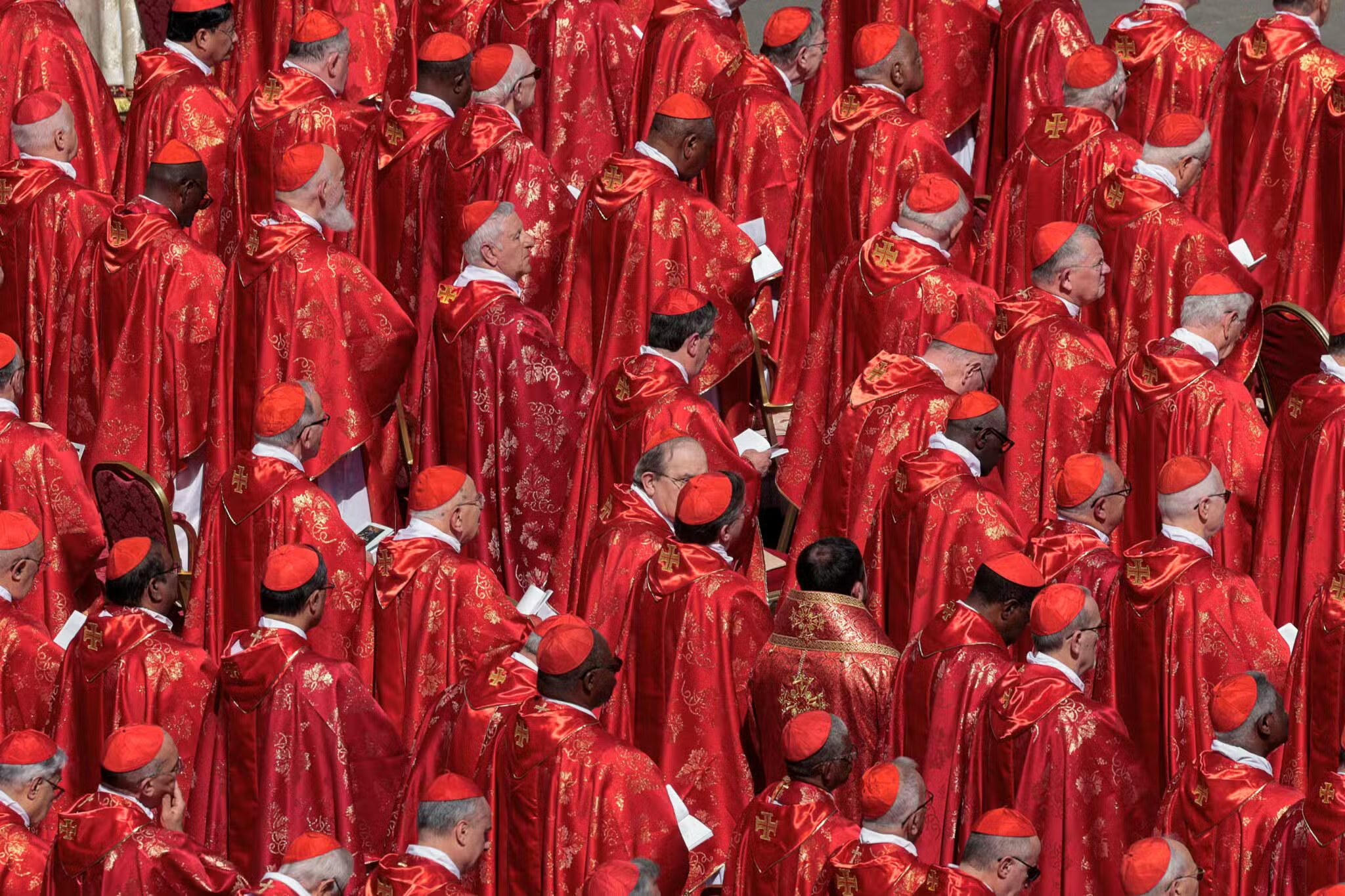Fourth Sunday of Lent
Year A: 1 Samuel 16:1b, 6–7, 10–13;
Psalm 23:1–3a, 3b–4,5, 6;
Ephesians 5:8–14;
John 9:1–41
Year B: 2 Chronicles 36:14–16, 19–23;
Psalm 137:1–2, 3, 4–5, 6;
Ephesians 2:4–10;
John 3:14–21
Year C: Joshua 5:9a, 10–12;
Psalm 34:2–3, 4–5, 6–7; 2
Corinthians 5:17–21;
Luke 15:1–3, 11–32
“Jesus answered, ‘Neither this man nor his parents sinned; he was born blind so that God’s works might be revealed in him.’” —John 9:3
Just as spiritual blindness can be far more devastating than the loss of physical sight, so having our vision of God’s grace restored can bring healing far beyond the physical. We see hope where once we knew only despair, and more than that we see new ways to communicate that hope to others. We see light instead of darkness, and in that light we discover a side of ourselves that we thought we had lost. We look with new eyes on the people around us and see how they, too, are children of God.
One of Francis’ greatest works is his “Canticle of the Creatures.” Francis wrote it late in his life. He was nearly blind from an eye disease acquired on his missionary travels. He could no longer see any of the natural delights that he had enjoyed throughout his life. In the midst of darkness and suffering, he praised light and joy. The paradox of our Christian life will always be that only through death do we obtain eternal life. If we begin with that belief as our firm foundation, we can follow Christ and his saints in turning the sadness and struggles of our lives into a means of praising God in our hearts, even if our minds take a little longer to understand.
Prayer
Most high, all-powerful, all good, Lord!
All praise is yours, all glory, all honor
And all blessing.
Amen.








